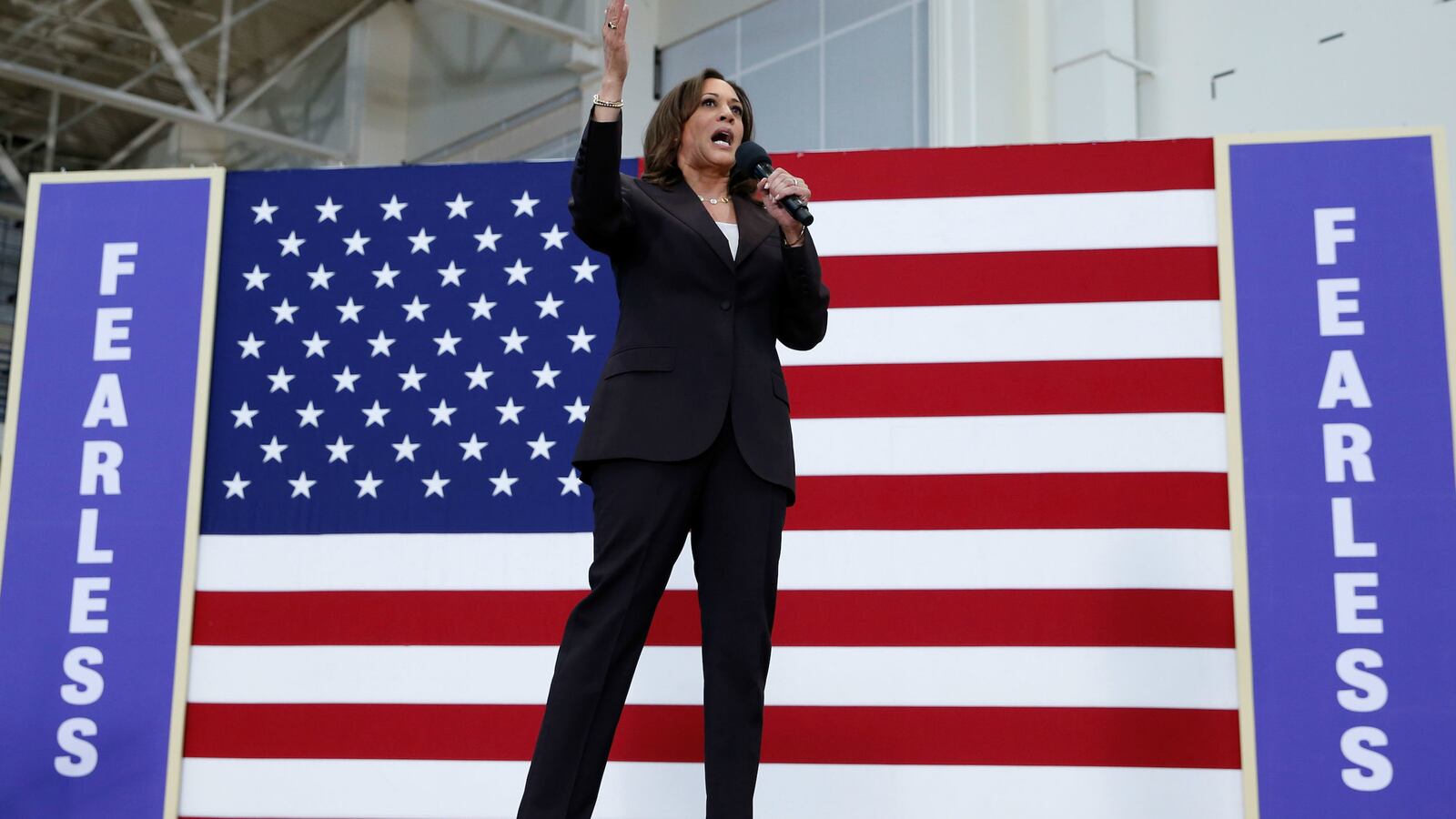Sen. Kamala Harris (D-CA) on Tuesday evening will unveil a new plan, called the Reproductive Rights Act, to stop states from instituting unconstitutional restrictions on abortion.
According to a senior campaign official, the California senator and 2020 presidential candidate will announce during an MSNBC town hall that as president she would implement, for the first time, a pre-clearance requirement for states and localities attempting to restrict women’s reproductive rights.
The plan would go above and beyond codifying the landmark Roe v. Wade decision with federal law by requiring that states and localities with a history of violating the Supreme Court decision obtain approval from Harris’ Department of Justice before any abortion law or practice can take effect.
Under Harris’ plan, states and localities will be subject to the pre-clearance requirement if they have a pattern of violating Roe v. Wade in the preceding 25 years, akin to a requirement in the Voting Rights Act.
According to the Brennan Center for Justice, between 1998 and 2013, 86 proposed election changes to voting rights were blocked with VRA pre-clearance requirements. The Supreme Court’s 2013 Shelby County v. Holder decision effectively neutered pre-clearance and has left Congress to attempt to restore and strengthen parts of the Voting Rights Act through legislation.
Harris’ proposal dictates that any change in a covered jurisdiction will not be enforceable until DOJ determines that it comports with standards of Roe v. Wade and the Women’s Health Protection Act, a Harris-sponsored bill that would ban certain abortion limitations. Guardrails under the plan, like public determinations and required reviews, would ensure DOJ enforcement even under an administration hostile to reproductive rights, the campaign official said, and patients and providers will have the opportunity to sue if the federal agency does not.
“We have to get really serious about the degree to which the Republicans have really targeted women’s access to abortion as their political way of winning of elections,” Laurie Rubiner, former vice president of public policy at Planned Parenthood said, praising the Harris plan. “I do think that the way that she has thought about this is very creative. I really like that what she is saying is ‘we’re going to shift that burden to the state’ especially in places where they have a history of passing these unconstitutional laws," she said referring to how it is currently often incumbent upon providers to file suit against state laws now.
Sasha Bruce, Senior Vice President of NARAL Pro-Choice America was also encouraged by the proposal and hoped to see the rest of the field continue to adopt concrete plans.
"Every candidate in this field should know it’s not enough to simply call yourself pro-choice," she said in a statement. "All candidates need to back up their words with a concrete plan for action, especially given the tenuous thread by which reproductive freedom hangs."
Harris, like many of her Democratic competitors, also wants to nominate judges who uphold the Roe decision, work to repeal the Hyde Amendment (which bars any federal funds from being spent on abortion), and protect providers like Planned Parenthood from defunding.
The senator’s plan comes as as a number of states like Alabama, Georgia, and Missouri have passed restrictive anti-abortion laws in recent weeks.





